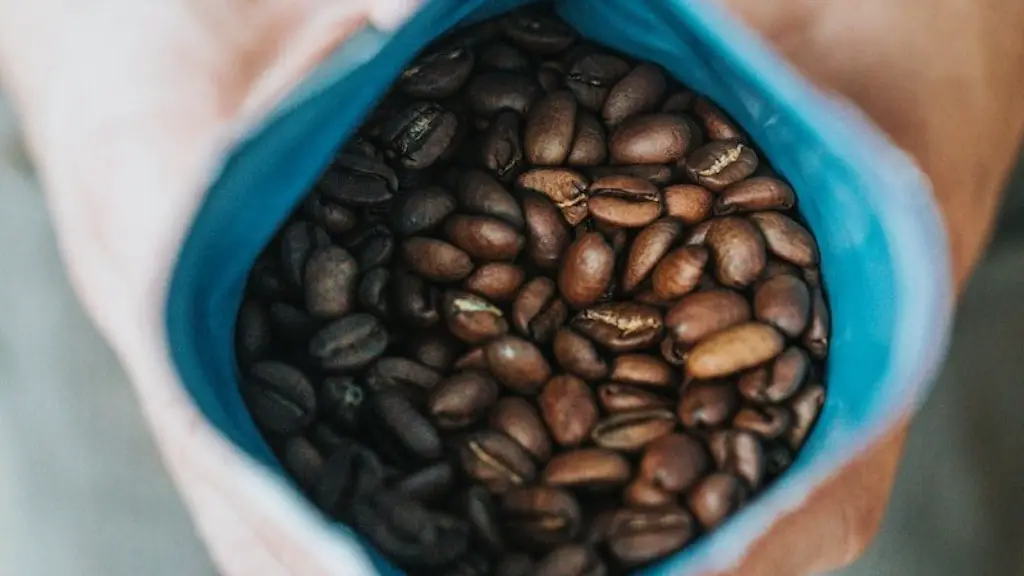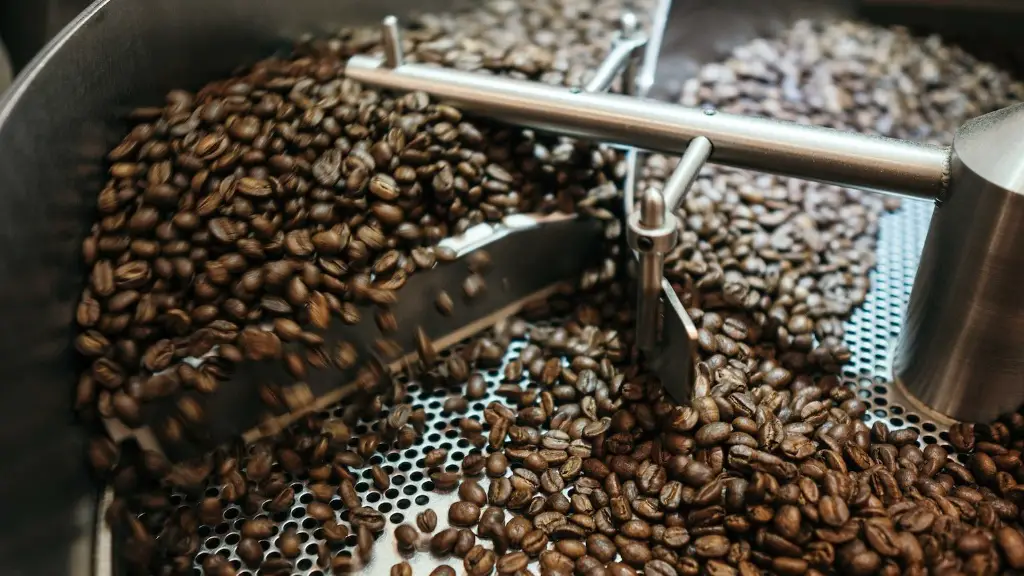Who Drinks More Coffee Men or Women?
Coffee is one of the world’s most loved drinks, and according to the latest surveys, Americans aged 18 and up consume an average of 3.1 cups of coffee each day. But who drinks more of it, men or women? There are studies to support both sides, so let’s look at the facts before diving into opinions.
According to the 2011 World Resources Institute Report, 60% of women in the US drink coffee. A 2013 Gallup poll revealed that 61% of men drink at least one cup of coffee a day. However, the same poll also uncovered that men tend to drink more than women when it comes to daily coffee consumption. Men averaged up to 2.4 cups each day compared to women drinking 1.9 cups.
In the workplace, a 2018 survey of 1,000 employees found that 80% of men consume coffee daily, while only 74% of women do the same. Men also reported drinking more cups of coffee per day at work but both genders seemed to prefer latte over other types of coffee drinks.
The opinions of experts support the idea that men consume more coffee than their female counterparts, but with some variation. The experts agree that while women rarely drink more than two cups, the majority of men can drink up to three or even four cups a day. Similarly, the experts agree that while men generally consume more coffee overall than women, that same amount of coffee may affect men and women differently due to differences in body mass.
Opinions also differ when it comes to the reasons why men drink more coffee than women, but the most common theories suggest that men may be more willing to consume excess caffeine due to the results of their work and studies, which is supported by the workplace survey mentioned earlier.
Coffee consumption may also be affected by a person’s age, health, lifestyle and other factors. However, the data we have so far suggests that men overall consume more coffee than women.
Health Effects of Coffee Consumption
While coffee consumption has many benefits, it’s important to note that over-consumption of caffeine can have adverse health effects. A 2011 study found that drinking more than four cups of coffee each day increased a person’s risk for hypertension, heart disease and stroke. The same study revealed that women are more sensitive to the effects of caffeine than men, which means that although men may consume more coffee, women may be more likely to suffer from negative health effects due to their consumption.
Other studies have found that the health effects of caffeine vary from person to person, and that those who already have certain health conditions may be more sensitive to its effects. This is one reason experts recommend limiting the amount of coffee consumed each day to two or three cups.
It’s also important to note that caffeine can interact with medications, so it’s best to consult with a doctor before consuming excessive amounts of coffee or any other caffeinated drink.
Difference Between Men and Women Coffee Preferences
When it comes to coffee preferences, men and women appear to differ significantly. For example, a 2017 survey of 1,000 coffee drinkers revealed that women tend to prefer specialty beverages such as cappuccinos or lattes while men are more likely to stick with plain black coffee. Women are also more likely to purchase coffee from specialty shops such as Starbucks, while men tend to purchase their coffee from supermarkets or convenience stores.
When it comes to flavors, men and women seem to agree on their favorites. The same 2017 survey revealed that the most popular coffee flavors for both genders were mocha and caramel. However, men seem to prefer more intense coffee flavors such as espresso, while women favor more subtle flavors such as hazelnut.
The type of coffee people drink also varies from person to person, and it’s often gender-based as well. A 2020 study found that while men tend to consume more coffee overall, women are more likely to like coffee-based beverages such as iced coffee or blended drinks.
Coffee Culture Around the World
Coffee culture is different in every region, but in many places, it’s becoming more widespread. A 2020 survey of 15 countries found that residents of countries such as Italy and France drank more coffee than those in other countries. In fact, Italians topped the list with an average of 4.1 cups of coffee per day. Meanwhile, Americans consumed an average of 2.9 cups per day. The survey also found that people in countries such as Brazil, Germany and Denmark consume less coffee than those in other countries.
Gender can also be a factor in coffee culture, as one study found that coffee consumption patterns often vary between men and women. In certain countries, such as Italy and Turkey, men tend to drink significantly more coffee than women. However, in other countries, such as Colombia and Brazil, the difference in coffee consumption among the genders is much less significant.
Coffee Consumption Patterns in Different Age Groups
In the US, coffee consumption is highest among adults aged 25 to 34. A 2014 survey of coffee drinkers revealed that 70% of adults aged 25 to 34 drank at least one cup of coffee every day, while 56% of adults aged 18 to 24 and 64% of adults aged 35 to 44 did the same. Overall, the survey found that the average daily consumption of coffee was 2.6 cups.
However, the survey also revealed that the patterns of coffee consumption vary in different countries, with some countries consuming less coffee than others. For example, the survey found that Europeans generally consume less coffee than Americans and other cultures.
Similarly, the survey found that coffee consumption tends to decrease as people age. For example, adults aged 45 to 54 consume an average of 1.7 cups of coffee a day, while adults aged 65 and up consume just 0.9 cups per day.
The Rise in Popularity of Alternatives to Coffee
In recent years, there has been a rise in the popularity of alternatives to coffee such as energy drinks and tea. A 2018 survey of 1,000 US adults found that energy drinks had become the most popular caffeinated beverage among adults aged 18 to 24, while tea had become the most popular beverage among adults aged 25 to 34. On the other hand, coffee was still the most popular beverage among adults aged 35 to 44.
Despite the rise in popularity of alternatives to coffee, the beverage is still the most consumed caffeinated beverage among adults of all ages. A 2020 study of adult beverages habits worldwide revealed that coffee remained the most popular caffeinated beverage overall, with an average daily consumption of 2.7 cups.
The study also found that caffeine consumption patterns vary from person to person and that the amount of caffeine consumed can be affected by lifestyle, health and other factors. Therefore, experts recommend limiting the amount of coffee consumed each day to two or three cups.
The Pros and Cons of Coffee Consumption
Coffee consumption has both pros and cons. One of the main advantages of consuming coffee is that it can help improve concentration and alertness. A 2020 study of healthy adults found that regular consumption of coffee can improve cognitive performance and alertness, but that the effects are more pronounced in those who are already sleep-deprived.
Coffee consumption can also be beneficial to your health if it’s consumed in moderation. Numerous studies have found that coffee can reduce the risk of certain chronic diseases, including type-2 diabetes, certain types of cancer and cardiovascular disease.
On the other hand, excessive consumption of coffee can have a range of negative effects, including headaches, insomnia, restlessness, anxiety and even heart palpitations. Therefore, experts recommend limiting the amount of coffee consumed each day to two or three cups.
Conclusion
In conclusion, coffee is one of the world’s most popular drinks. While both men and women consume coffee, studies suggest that men are more likely to drink more coffee than women. The reasons for this difference in coffee consumption patterns vary, but it could be due to women’s lower tolerance to caffeine or the fact that men may be more willing to consume excess caffeine due to the results of their work and studies.
Coffee consumption has both pros and cons and it’s important to drink it in moderation. If consumed in moderation, it can improve cognitive performance, alertness and even help reduce the risk of certain chronic diseases. However, it’s important to note that over-consumption of caffeine can have negative effects on the body, so it’s best to consult with a doctor before consuming excessive amounts of coffee or any other caffeinated beverage.





